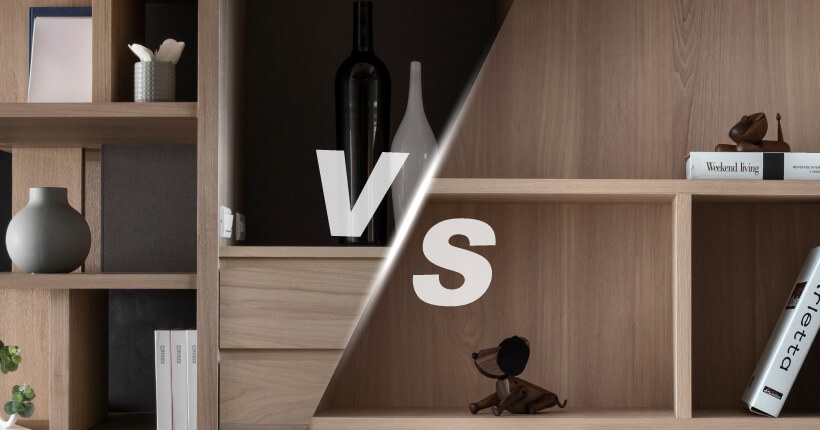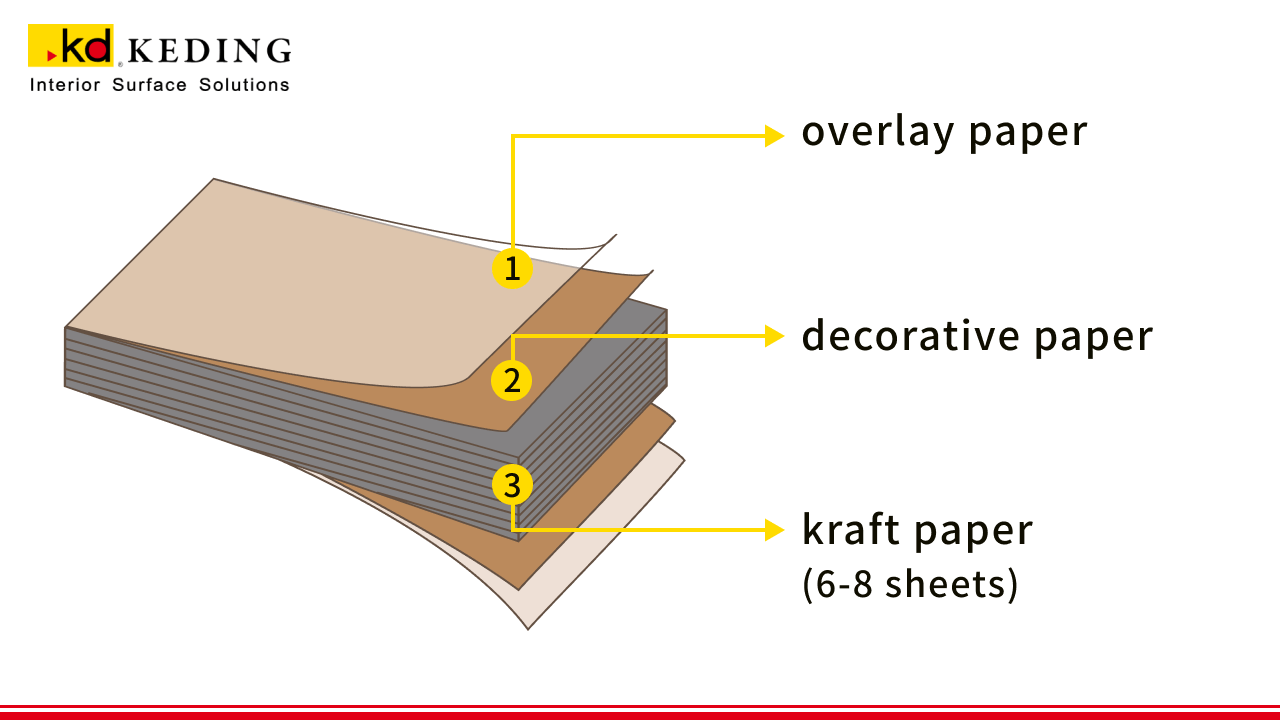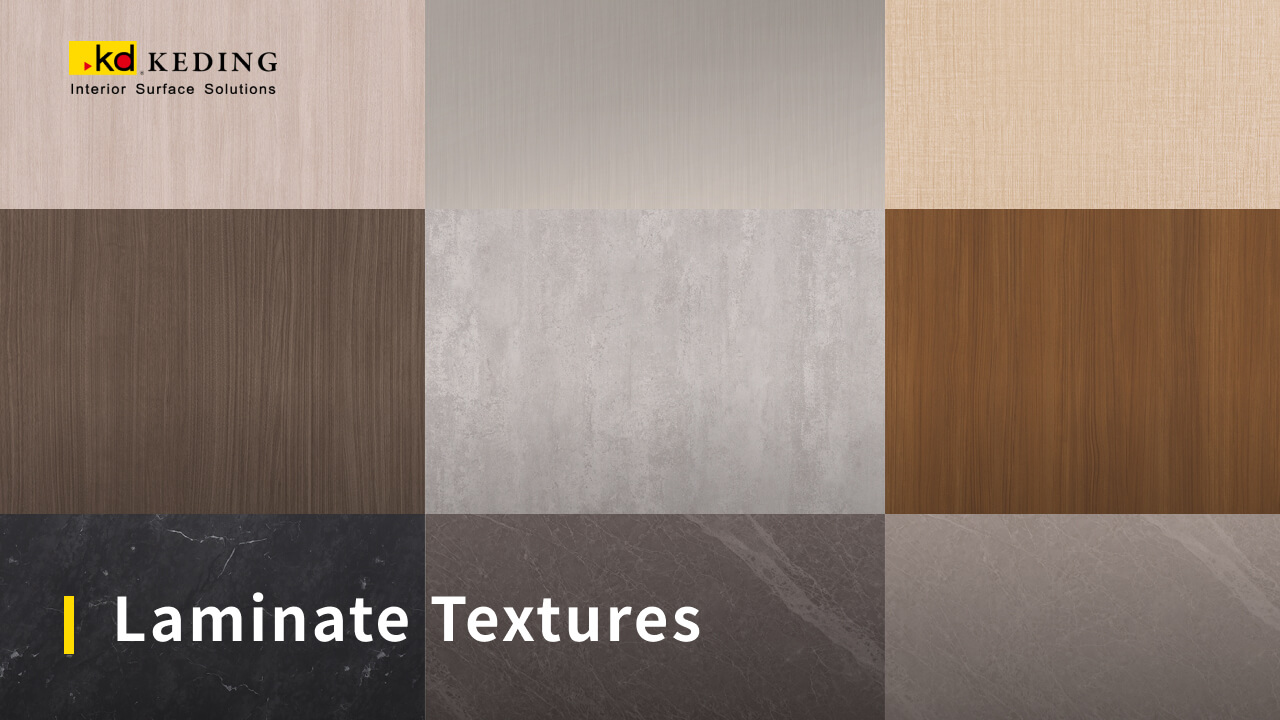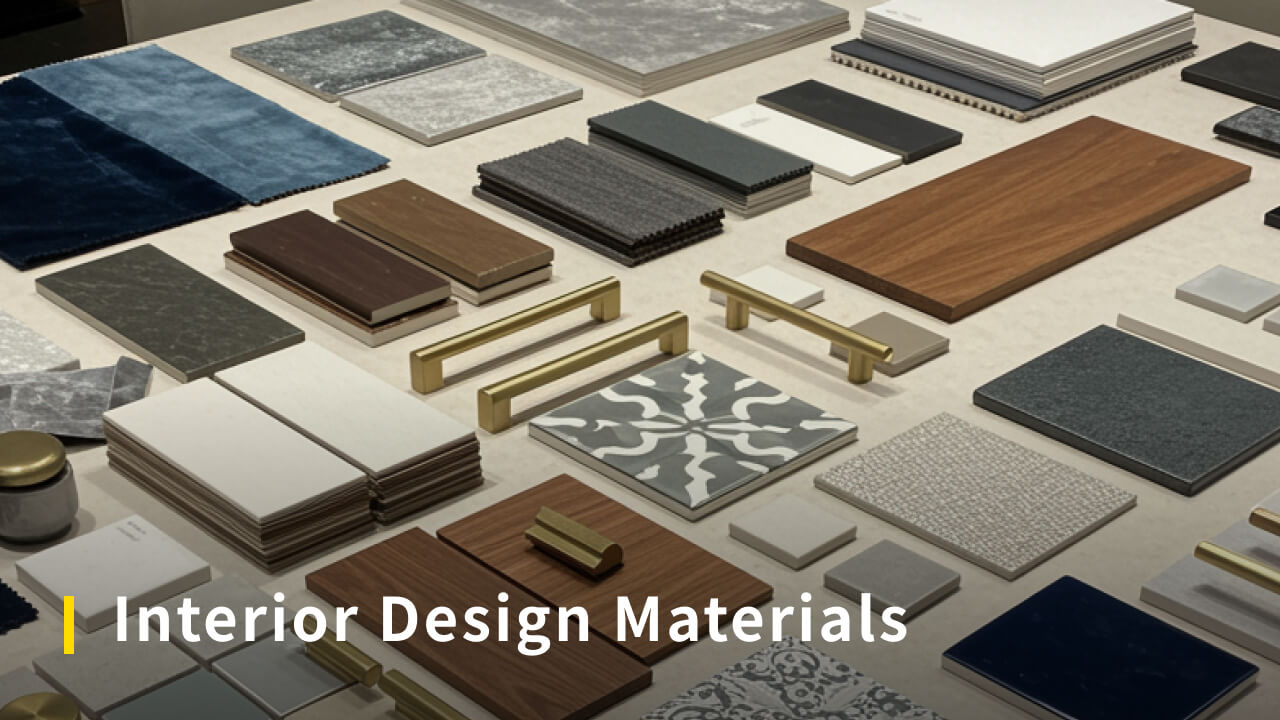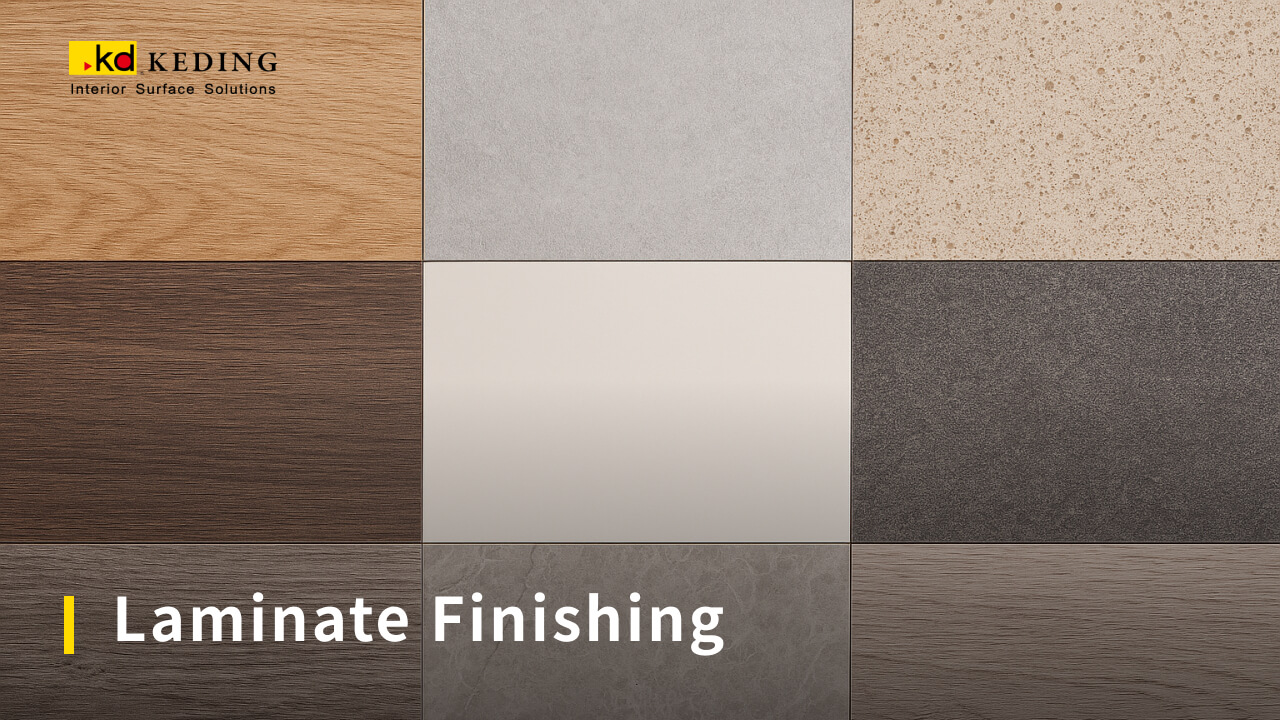What is HPL(High-Pressure Laminates)?
High-pressure laminate (HPL) is a versatile and durable surfacing material commonly used in interior design and construction. A high-pressure laminate board is composed of multiple layers (normally 6 to 8 sheets) of kraft paper infused with synthetic thermosetting resin and a decorative paper layer, all bonded together under high heat and pressure (usually exceeding 1,000 PSI).
The result is a strong, flexible, resilient, and visually appealing material that can mimic various textures, like wood and marble, patterns, and colors, making it ideal for applications such as furniture, countertops, and wall cladding, suitable for both residential and commercial settings.
Typical high-pressure laminate (HPL) panels have a thickness ranging from 0.71 to 1.22 mm, while thickness variations exist in other laminate types based on their features and applications. Postforming HPL demonstrates flexibility around curved edges when subjected to heat, with a maximum thickness of approximately 0.97 mm. On the other hand, Back HPL is manufactured without a decorative surface, resulting in a thinner profile.
HPL Manufacturing Process
Laminate sheets undergo two main manufacturing processes: high pressure and low pressure.
Low-pressure laminates, often referred to as melamine boards, consist of a single-wear layer and decorative sheet compressed under low pressure and high temperatures. While customizable, they are less durable and cheaper.
High-pressure laminates are carefully crafted by layering kraft paper and bonding it with strong melamine and phenolic resins. This layered mix is then put under high pressure (more than 1,000 PSI) and heat. During the curing process, thanks to the nature of these resins, they transform into sturdy plastic, creating a tough and durable high-pressure laminate sheet. The irreversible bonds formed during this process are a key factor in making HPL exceptionally long-lasting.
HPL Benefits
High-pressure laminates (HPL) offer a versatile and durable solution for various applications, here’s a comprehensive look at what makes HPL stand out:
- Superior wear resistance: The outermost layer acts as a shield to protect against impacts, scratches, and abrasions while keeping the original vibrant color and patterns alive.
- Heat resistance: While not suited for extreme heat, HPL can withstand moderate temperatures up to 135°C or 275°F for sustained periods.
- Low heat conduction: Enjoy consistent comfort, as HPL minimizes heat transfer, keeping surfaces comfortable to the touch regardless of high temperatures.
- Minimal maintenance: Smooth surface effortlessly repels dirt and moisture, making it exceptionally easy to clean and maintain, contributing to a cleaner and hygienic anti-bacterial environment, ideal for high-traffic areas.
- Desired appearance: Achieve the realistic textures and finishes of premium materials at affordable prices. HPL can be crafted to mimic the appearance of wood, stone, and other special materials.
- Perfect Adaptability: Versatile installation options, whether vertical or horizontal, make it suitable for a wide array of tailored needs and various locations.
HPL Applications
Decorative high-pressure laminates find widespread use in various applications, perfect for vertical, horizontal, curved, and cylindrical surfaces, making them a preferred choice for interior designs. Common suitable applications include:
- Residential Interior: Enhance the aesthetics of homes by using HPL for walls, partitions, ceilings, floorings, and other interior fitting.
- Furnishings: Transform the appearance of furniture, including pieces like TV consoles, cabinets, shelves, countertops, benchtops, and so on.
- High Hygiene Environment: Due to their easy-to-clean nature, ideal for areas with high hygiene requirements, such as laboratories, hospitals, and kitchens.
- Commercial Spaces: Commonly employed in retail outlets, clinics, or even store and fair construction, and other commercial settings.
Difference Between HPL and Keding’s Laminates
| HPL | KD ECO+ Laminates | |
| Materials | Multiple layers of kraft paper bonded with melamine and phenolic resins | Non-toxic food-grade PP material with SGS-certified coating |
| Durability | ★★★ | ★★★★★ |
| Features | Heat-resistantScratch-resistant
Waterproof |
Multiple texturesEco-friendly materials
Easy to maintenance Scratch-resistant Seamless edge |
| Applications | Tools needed for cuttingEasily chipped corners | Easy to cutSimple installation
Allows for sharp cuts with art knives |
| Flexibility | Limited | Applicable curved areas |
| Length | 8’/9’/10′ | No length limitations |
| Price | HPL offers similar functionality to ECO+ Laminates but with a triple price | Great quality with affordable prices |
While HPLs offer durability, they often come with a hefty price tag. Here we present, the ECO+ Laminates, a brilliant alternative that not only rivals HPL in durability but also introduces remarkable affordability. The innovative composition of ECO+ makes at-home cutting a breeze, eliminating the risk of chipped corners. Beyond cost savings, ECO+ goes the extra mile, providing a delightful variety of textures to enhance your design.
Elevate your space with the perfect blend of durability, user-friendly features, and budget-friendly options – all wrapped up in our eco-friendly ECO+ Laminates.
Click below to discover more of Keding’s laminate designs and projects!
Keding – Your Best Laminates Manufacturers
Explore Keding’s laminate solutions, outshining high-pressure laminates with distinct advantages. With a focus on eco-friendliness and health-conscious materials, our laminates offer unmatched quality and innovation for all projects.Contact us now, the leading laminate brand in Singapore, to elevate your spaces with superior products, or click below to explore our ECO+ laminates collections for more inspiration and unleash your design potential!
Relative Reads
>> Laminates for Kitchen Cabinets: Types, Benefits & Design Ideas – Keding
>> Why Use Laminates on Walls & Design Ideas for Wall Laminates – Keding
>> What is Melamine Board vs Plywood vs MDF: Benefits & Uses – Keding
>> What is Wood Veneer: Benefits, Uses, Types & How to Choose – Keding
